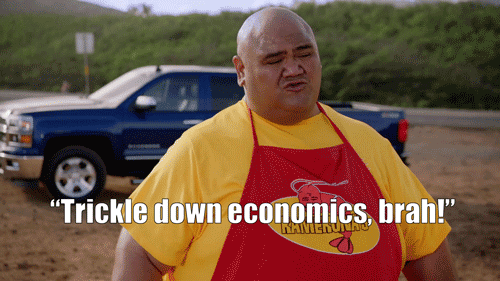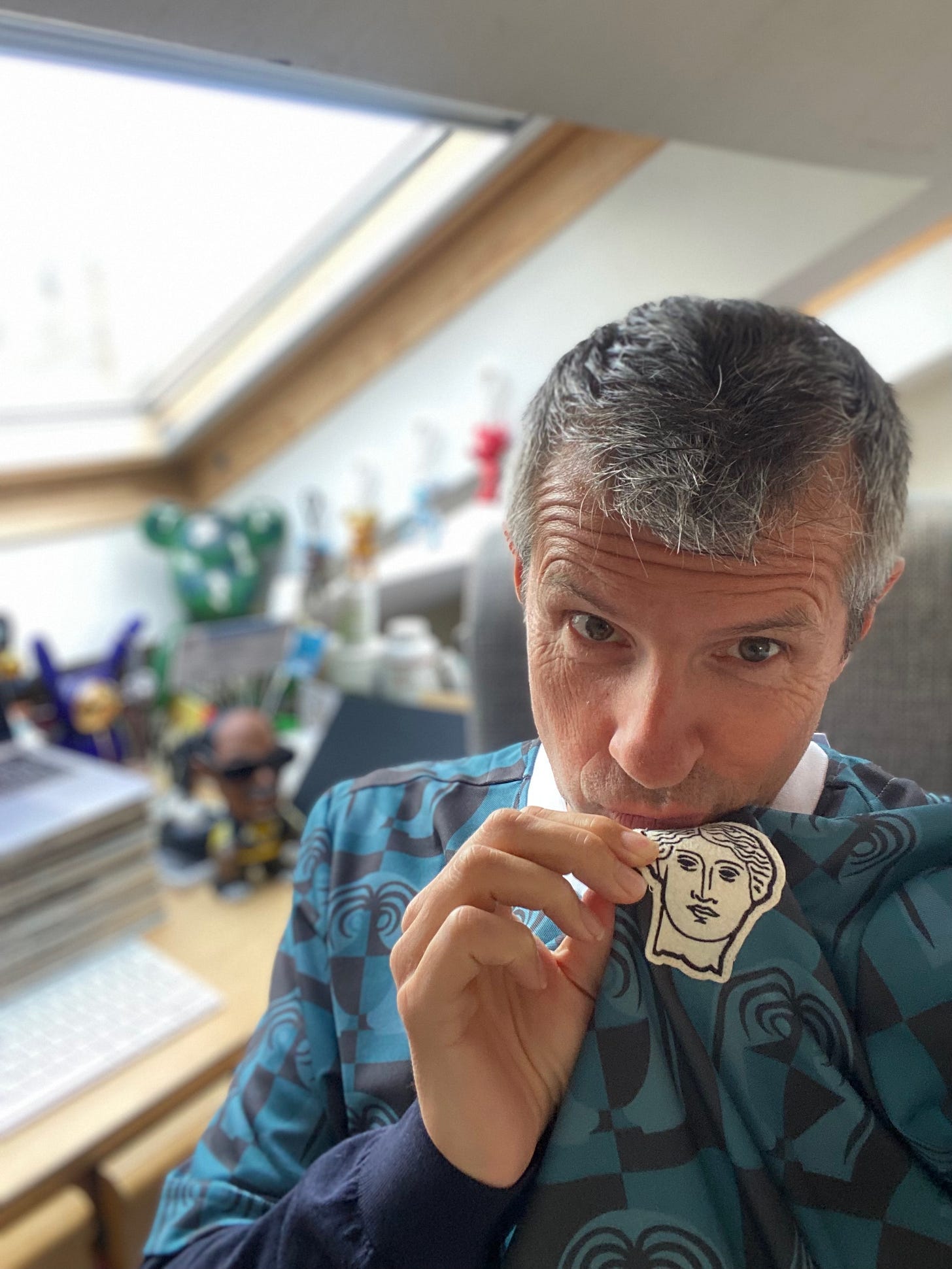Where did all the money go; Questions from the cliff edge; Grit v Quitting; Why Google Stadia failed; Digital White Elephants; Trickle down; Saudi snowballs; What if people just do nothing
Overthinking the sports business, for money
The Questions We Could Ask
So…recession. The great reckoning.
Raging cost inflation, rising interest rates, decimation of demand.
Before we take the ride down the escalator, let’s pause and think of the good times, that much mentioned period of unprecedented growth in the sports economy.
Here’s six questions.
1. What happened to all the money?
There will be blood. But whose?
My bet is that the pain won’t be felt by the 1% superstar athletes or sport’s investor class and their counterparts in the C-Suite.
The real force of the downturn will be felt by the people who always cop it, the poor bastards at the bottom.
And after a twenty year sports boom, they’re entitled to ask: what happened to all the money?
2. Who’s getting paid?
Every day, the sports business trades trumpet another new deal; a mega sponsorship, a billion quid media rights fee, the magic money tree doing its thing.
But the uncomfortable truth is much of the sports economy is based on the use of free or low cost labour, in the form of athletes and volunteers.
There’s the obvious candidates - US College sport is the poster child for multi billion dollar rights fees derived from free labour.
Every Olympic Games trousers a few billion yet uses 80,000 volunteers to run the event.
Many so-called professional sports are hybrids, where athletes are presented with a gig economy offer with all the rights and benefits enjoyed by your local Deliveroo rider.
Sport sells itself as a meritocracy, the rags to riches ideal. But beyond football, boxing and a few others, posh kids seem miraculously to get the best gigs.
Add in the purpose movement and we have a potent cocktail of dangerous Hallmark card as strategy bullshit.
See a previous note on UFC’s poverty model - What the Endeavour float looked like from the bottom of the UFC.
While the media lionises Conor McGregor, most fighters struggle with the job of being a self employed contractor, bearing all the risks, costs and lack of job security that are familiar to any pizza delivery rider.
Check out UP171 with Jennifer McClearen, author of Fighting Visibility: Sports Media and Female Fighters in the UFC.
3. How many of the big bets came through?
Across sport’s boardrooms, it’s time to bring out those great sunk cost projects.
If this is really THE END TIMES, what would be on a list of indulgent ideas that will now be quietly shelved, the opportunity cost of which will never be calculated.
I’ll start:
Quite a bit of that digital transformation strat.
Most event apps.
The OTT-channel-as-competitive-tension argument.
That expensive new in-house media studio.
4. When will you quit?
Resilience has been weaponised, shifting responsibility for psychological safety and wellbeing away from senior management and down to people working on the front line.
Toughen up. Grow a pair.
On a personal level, it’s patronising to people about to lose their livelihoods, delivered by boomers whose own life changing insight was to buy a flat in the 90s.
At an organisational level it’s as dumb as fuck.
Resilience is a bias that leads to bad decisions.
Annie Duke: The misguided urge to persevere—even when that perseverance is half-hearted at best—isn’t restricted to individuals. Businesses stick with high-profile hires who aren’t working out and continue offering products that are clearly failing. Nations spend years, sometimes decades, throwing money and human life into unwinnable wars. This is the downside of grit. Though grit can get you to stick to hard things that are worthwhile, grit can also get you to stick to hard things that just aren’t worth sticking to
(This quote is from Annie Duke, a poker player who also wrote a very good book on probability and decision making, Thinking In Bets).
5. What if people just do nothing
Doing nothing is a decision.
And all decisions carry cost.
This came up at our recent Wise UP event at Arsenal.
If you’re running a club or a sport, do you jump in to web3 or sit it out for a year or two to see if - to misquote Dorothy Parker - there’s any there there?
Yes is easier to model. The cost-return equation has a spreadsheet with numbers and scenarios of building in-house blockchain expertise v farming it out to third party vendors, who take the reputation risk and, later, the blame.
No is harder to quantify and more about psychology than economics.
Zero cost money has played havoc with the self image of a generation of Poundshop Adam Silvers, who crave the signal of being out front of the new, new thing.
Doing nothing is often the harder decision, and it doesn’t win awards.
6. What if…your main sponsor is a climate change denier?
This recession will make the Australian netball story more frequent as rights holders become more desperate for money and less picky about ESG promises.
See also:
Strange times these.


A Winter Games in Saudi is both absurd and entirely predictable.
Btw, this campaign won a Cannes Lion. I remember thinking it was satire.
Randoms
Google Stadia: The UP Guide To Being Wrong In Public
What happened?
Google Stadia is closing down.
What important lessons can we learn about the role played by podcasts and newsletters in hyping things they don’t know much about?
Quite a bit it turns out.
Google Stadia, the cloud based gaming platform, launched at the E3 conference in June 2019.
That week, me and Sean did a podcast with some bright young things from ‘esports world’.
The resulting pod was good and I learnt a load. And listening to it again this week, it holds up fine. Have a go yourself.
That week’s UP newsletter followed up with a 6 Things type listicle…with number one nicked from the pod conversation.
Having now heard of Google Stadia, I ransacked Google - ironically - for a counter piece to run against the prevailing Springsteen-esque ‘I’ve seen the future’ hyperbola (Google it).
This next bit (from Time) jumped out as being nicely inside baseball, carrying with it the hope of some reflected-cleverness: Stadia could fail and for a really boring reason - bandwidth.
As a trend, Newzoo is hot on cloud gaming. The tech behind it is better established than when the likes of OnLive began making waves a decade ago. But those waves crashed because of the cost of broadband and infrastructure. With offerings like Microsoft Azure, Amazon Cloud Services, and Google Cloud, servers aren’t the problem. It’s the cost and accessibility of broadband that’s the biggest hurdle for the likes of Google Stadia and Project xCloud. The rollout of 5G will help, but especially in the U.S, providers such as Comcast are a problem thanks to their data caps and high prices. It’s a concern. Google also runs Fiber, its broadband service, but that’s in few areas, and it doesn’t look like it’s expanding it any time soon.
See also, this mini-thread is a fascinating insight in to Google corporate culture and the problems that follow every new product launch.
"When something like Stadia, or any other service, launches. You will always see an immediate slowdown in development and features. It's because all experienced and ambitious engineers LEAVE the project very shortly after the launch. Because there is no promo-food to get anymore"
Cash for Questions
Prize for the Most Erudite Question at UP Live
Winner: Chris Sice
Prize: One (Reassuringly expensive but donated free) Futsol retro football shirt (Size L) with optional Unofficial Partner branding.
Sportsbiz Job of the Week
The Job
Marketing Manager at Ear To The Ground
The Blurb
As Marketing Project Manager you will be central to the promotion and growth of the agency with expert Project Management skills, and a wide knowledge of Marketing theory and practice. With a minimum of 5 years’ experience you will lead delivery of Ear to the Ground’s Marketing campaigns, offering end-to-end Project Management of our initiatives to ensure we are driving fame, word of mouth and commercial growth. You will play a key role in supporting our New Business team to help drive our pipeline and you will work closely with our wider team to lead on our awards process.
The Link: Click here to apply, and tell them UP sent you. (They’ll know because of the affiliate link, but you get the point).










